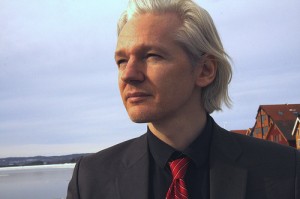 “[T]echnology, has created a monstrous genie, that is impossible to put back in the bottle, with out destroying the massive and ever increasing value of the bottle itself.”
“[T]echnology, has created a monstrous genie, that is impossible to put back in the bottle, with out destroying the massive and ever increasing value of the bottle itself.”
That’s a comment on WikiLeaks, but it could be about modern medicine. Just as the Internet changes the world faster than governments can keep up, rapid developments in medicine – genetic enhancement, life extension, cyborgs — require deep and serious thought. What I like about the commentaries I’ve read on WikiLeaks is the willingness to discuss challenging ideas.
Here are some excerpts from a post by Clay Shirky, entitled “Half-formed thought on Wikileaks & Global Action.” (emphasis added)
[The 1971 Supreme Court decision on the Pentagon Papers] established the principle that it was illegal to leak secrets, but not to publish leaks. …
The biggest difference between the Pentagon Papers case and Wikileaks is not the legal precedent, but the fact that the Pentagon Papers case was an entirely local affair. …
The legal bargain from 1971 simply does not and cannot produce the outcome it used to. This is one of the things freaking people in the US government out — not that the law has changed, but that the world has, and the industrial era law, applied to internet-era publishing, might allow for media outlets which exhibit no self-restraint around national sensitivities, because they are run by people without any loyalty to — or, more importantly, need of — national affiliation to do their jobs. …
Society is made up of competing goods that can’t be resolved in any perfect way — freedom vs. liberty, state secrets vs. citizen oversight — but the solutions to those tensions always take place in a particular context. Sometimes a bargain is so robust it lasts for centuries, as with trial by jury, but sometimes it is so much a product of its time that it does not survive the passing of its era.
I think that this latter fate has befallen our old balance between secrets and leaks. …
Like the music industry, the government is witnessing the million-fold expansion of edge points capable of acting on their own, without needing to ask anyone for help or permission, and, like the music industry, they are looking at various strategies for adding control at intermediary points that were previously left alone, under the old model. …
Julian [Assange] claims that the history of these matters will be divided into “pre-” and “post-Cablegate” periods. This claim is grandiose and premature. However, it is not, on present evidence, visibly wrong. …
Whatever happens, though, this is new ground, and needs to be hashed out as an exemplar of the clash of basic principles that it is.
The “Shirky Principle” states that “Institutions will try to preserve the problem to which they are the solution.” Food for thought when considering the future of medicine and the pharmaceutical industry.
Related posts:
Wikileaks, nerd supremacy, anarchy, dictatorship, and democracy
The end of privacy
Is the Internet bad for your health?
Resources:
Image: Nexus404
Clay Shirky, Half-formed thought on Wikileaks & Global Action, Clay Shirky, December 31, 2010


Sorry, comments are closed for this post.